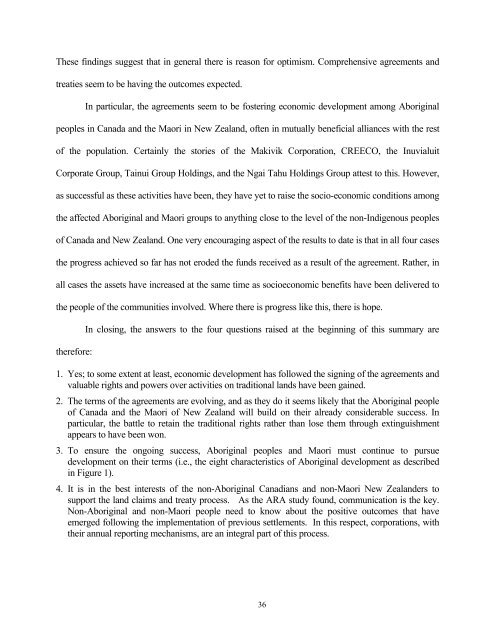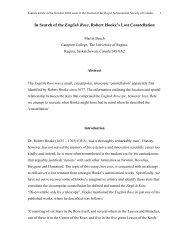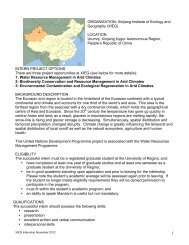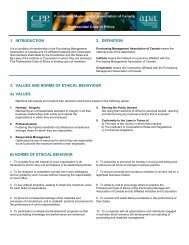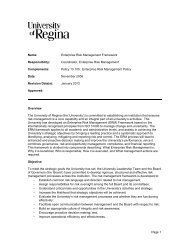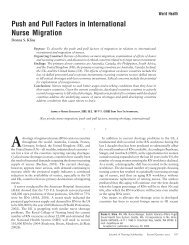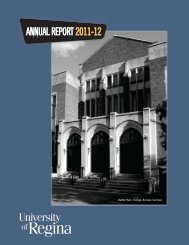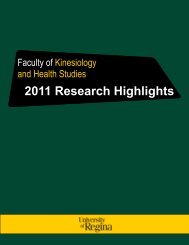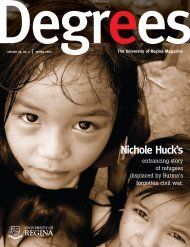The Indigenous Land Claims in New Zealand and Canada
The Indigenous Land Claims in New Zealand and Canada
The Indigenous Land Claims in New Zealand and Canada
Create successful ePaper yourself
Turn your PDF publications into a flip-book with our unique Google optimized e-Paper software.
<strong>The</strong>se f<strong>in</strong>d<strong>in</strong>gs suggest that <strong>in</strong> general there is reason for optimism. Comprehensive agreements <strong>and</strong>treaties seem to be hav<strong>in</strong>g the outcomes expected.In particular, the agreements seem to be foster<strong>in</strong>g economic development among Aborig<strong>in</strong>alpeoples <strong>in</strong> <strong>Canada</strong> <strong>and</strong> the Maori <strong>in</strong> <strong>New</strong> <strong>Zeal<strong>and</strong></strong>, often <strong>in</strong> mutually beneficial alliances with the restof the population. Certa<strong>in</strong>ly the stories of the Makivik Corporation, CREECO, the InuvialuitCorporate Group, Ta<strong>in</strong>ui Group Hold<strong>in</strong>gs, <strong>and</strong> the Ngai Tahu Hold<strong>in</strong>gs Group attest to this. However,as successful as these activities have been, they have yet to raise the socio-economic conditions amongthe affected Aborig<strong>in</strong>al <strong>and</strong> Maori groups to anyth<strong>in</strong>g close to the level of the non-<strong>Indigenous</strong> peoplesof <strong>Canada</strong> <strong>and</strong> <strong>New</strong> <strong>Zeal<strong>and</strong></strong>. One very encourag<strong>in</strong>g aspect of the results to date is that <strong>in</strong> all four casesthe progress achieved so far has not eroded the funds received as a result of the agreement. Rather, <strong>in</strong>all cases the assets have <strong>in</strong>creased at the same time as socioeconomic benefits have been delivered tothe people of the communities <strong>in</strong>volved. Where there is progress like this, there is hope.therefore:In clos<strong>in</strong>g, the answers to the four questions raised at the beg<strong>in</strong>n<strong>in</strong>g of this summary are1. Yes; to some extent at least, economic development has followed the sign<strong>in</strong>g of the agreements <strong>and</strong>valuable rights <strong>and</strong> powers over activities on traditional l<strong>and</strong>s have been ga<strong>in</strong>ed.2. <strong>The</strong> terms of the agreements are evolv<strong>in</strong>g, <strong>and</strong> as they do it seems likely that the Aborig<strong>in</strong>al peopleof <strong>Canada</strong> <strong>and</strong> the Maori of <strong>New</strong> <strong>Zeal<strong>and</strong></strong> will build on their already considerable success. Inparticular, the battle to reta<strong>in</strong> the traditional rights rather than lose them through ext<strong>in</strong>guishmentappears to have been won.3. To ensure the ongo<strong>in</strong>g success, Aborig<strong>in</strong>al peoples <strong>and</strong> Maori must cont<strong>in</strong>ue to pursuedevelopment on their terms (i.e., the eight characteristics of Aborig<strong>in</strong>al development as described<strong>in</strong> Figure 1).4. It is <strong>in</strong> the best <strong>in</strong>terests of the non-Aborig<strong>in</strong>al Canadians <strong>and</strong> non-Maori <strong>New</strong> <strong>Zeal<strong>and</strong></strong>ers tosupport the l<strong>and</strong> claims <strong>and</strong> treaty process. As the ARA study found, communication is the key.Non-Aborig<strong>in</strong>al <strong>and</strong> non-Maori people need to know about the positive outcomes that haveemerged follow<strong>in</strong>g the implementation of previous settlements. In this respect, corporations, withtheir annual report<strong>in</strong>g mechanisms, are an <strong>in</strong>tegral part of this process.36


